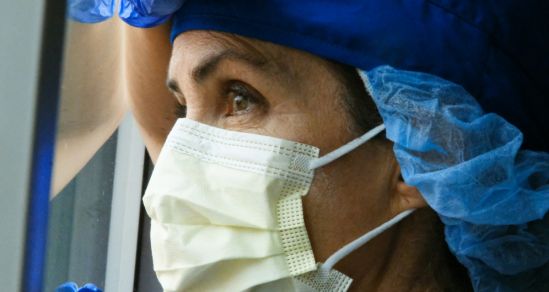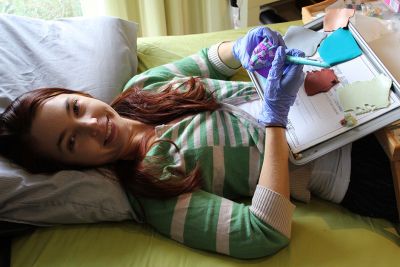Regular health checks can help identify early signs of health issues. The earlier a problem is discovered, the earlier treatment can begin. Men's health week runs from June 14 - 20, so it's a great time to schedule those regular health checks.
Prostate Screening
Prostate cancer is the most common cancer affecting Australian men. It affects mostly men in older age brackets and is rare in men under the age of 50.
Risk factors are higher for men with a close relative with prostate cancer. If the relative received a diagnosis under the age of 60, then risks are also increased.
If you have a family history of prostate cancer, seek information from your doctor.
Early symptoms to watch for include
- Difficulty passing urine.
- A slow interrupted rine flow.
- Frequent passing of urine, including at night.
Advanced symptoms include
- Blood in the urine.
- Pain during urination.
- Pain in the lower back or the pelvic area.
Screening Tests
The two most common tests screening for prostate cancer are the
- Prostate-Specific Antigen (PSA).
- Digital Rectal Examination (DRE).
The PSA is a blood test that gauges the level of PSA in the blood. The PSA range is age-related, and a result above the typical range for the age may indicate prostate cancer possibility. A higher PSA may also suggest non-cancerous conditions such as prostatitis and Benign Prostatic Hyperplasia (BPH), an enlarged prostate gland.
Screening tests for breast, bowel and cervical cancer can save lives, but there is still confusion around PSA testing for prostate cancer. Read more about the PSA testing on the Prostate Cancer Foundation of Australia website.
DRE is not a routine test for men who do not have symptoms; before a biopsy, the test checks for prostate changes. A Urologist usually conducts it to feel the prostate internally.
If the PSA and DRE suggest an anomaly, then Magnetic Resonance Imaging (MRI) and Transrectal Ultrasound (TRUS) biopsy are used to confirm a diagnosis.
A biopsy will involve removing a small sample of tissue from the prostate, using thin, hollow needles guided by ultrasound. To identify if the cells are cancerous or not, a laboratory will check the tissue. Antibiotics may be prescribed after the procedure to reduce the chance of infection.
Treatment options for prostate cancers include surgery and radiotherapy.

Testicular Self examination
Testicular cancer is the development of abnormal cell in the testicle. Cells can grow, multiply and divide to create a growth, or a tumour.
Testicular cancer is a common cancer in young men aged 20 to 39. There are two main types of testicular cancer: seminoma and Non-Seminoma. Seminoma cancer usually occurs in men between 25 and 45 years and is generally a more slowly developing tumour. Non-seminoma tumour is more common in younger men from late teens to early '20s.
A painless lump on the testicle can be evidence of a fluid-filled cyst, but can also be a sign of testicular cancer.
Risk Factors
- Family history of testicular cancer.
- Down Syndrome has a higher genetic risk of testicular cancer.
- Undescended testicles in infancy.
Symptoms include
- Constant backache
- Coughing or breathlessness
- A "heavy" feeling in the scrotum
- Enlarged or tender nipples (evidence that cancer may have spread)
The Examination
A regular Testicular Self-Examination (TSE) is a simple check you can do in private. Do this somewhere you feel comfortable - in the bath or shower, or as you get dressed.
Firstly stand in front of a mirror and check for any swelling on the skin of your scrotum. Hold your scrotum in your hands and feel the size and weight of each testicle. It is normal if one is a little bigger or hangs lower. You should not feel pain when checking your testicles.
Feel each ball and roll it between your thumb and finger, one at a time, and check for swelling or lumps. The testicles should feel firm, and the surface should feel smooth. You should be able to feel your epididymis, a soft tube near the back of each testicle. Check for any swelling in this area.
You should do this check regularly and monitor for any changes. If you do notice a difference, book an appointment for your doctor. There is no routine screening test for testicular cancer. Self-examination is yet to be proven to improve outcomes or pick up cancer earlier.
Medical staff will also use ultrasounds and blood tests to diagnose cancer.
Treatments
The treatment depends on the type of testicular cancer and the development stage of the tumour. Surgical treatment to remove the affected testicle is the first step of treatment. After surgery, regular follow-ups will occur to check if cancer has spread to other parts of the body. Medical staff may choose to use Chest X-ray, and CT scans to check if cancer has spread.
Chemotherapy and radiotherapy are methods to kill off any cancer cells that may have spread. For a range of resources including a video on testicular self-examination, see Andrology Australia. For more information about Testicular Cancer see Cancer Council.
Infertility
Infertility is classified as 12 months of unprotected sex without a resulting pregnancy. Infertility can be of concern for both partners.
If you choose, Doctors can help you by investigating the reasons for infertility. Deciding to investigate or not can be an emotional journey for both partners. There is not always an answer. Talking to a doctor, counsellor, or psychologist can help cope with these emotions and decide what to do next and which tests you might choose to have.
Contraception
Contraceptions are methods to avoid pregnancy.
Understanding contraception choices available, safe sex and the symptoms of sexually transmissible infections (STIs) are important to your sexual health. The risk of (STIs) is a lifelong issue to be considered for all new relationships and in your contraception selections.
Safe Sex and Fun is a resource collection for teaching people with intellectual disability about positive, safe sex messages. Parents, family members, support workers, advocates, teachers and clinicians who want to talk with a person with intellectual disability about sexuality may find the resources useful.











































